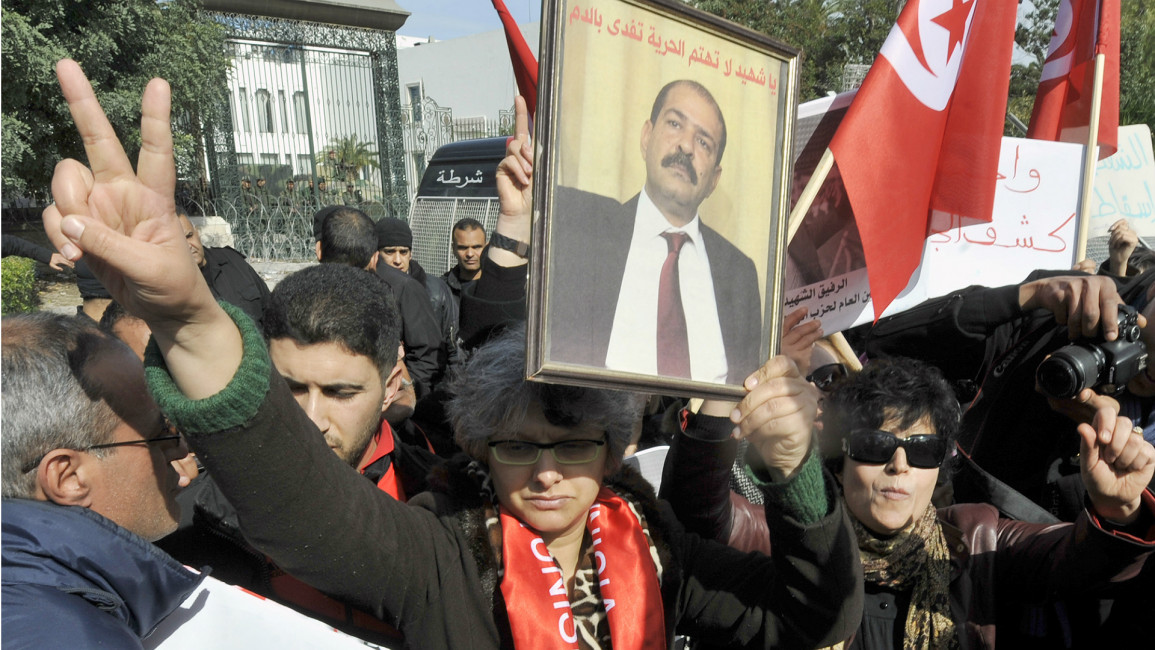Tunisia sentences four to death for 2013 murder of politician Chokri Belaid
A Tunisian court on Wednesday sentenced four people to death and two to life in prison on charges of participating in the murder of prominent political leader Chokri Belaid 11 years ago, which sparked mass protests against the then ruling Islamists.
Belaid, a leftist politician, had been a fierce critic of the Islamist Ennahda party which led the government at the time, accusing it of turning a blind eye to violence by extremists against secularists. He was shot dead in his car by gunmen on Feb. 6, 2013 in what was viewed as the first political assassination in Tunisia in decades.
Belaid's assassination sparked huge, violent protests at an already turbulent time shortly after the Arab Spring in 2011, when protests erupted first in Tunisia and then across the region toppling several long time autocrats.
Months after Belaid's assassination, Mohamed Brahmi another leftist was shot dead by gunmen, and mass protests and political pressure forced the government led by Ennahda to step down.
The Islamist-led government had said those involved in the assassination of Belaid and Brahmi belonged to the jihadist Ansar al-Sharia, an organization that it had classified as a "terrorist group" in August 2013. Eighteen suspects in total were sentenced on Wednesday.
Belaid's family and secularist politicians accused Ennahda party leaders of being behind the assassination, an allegation strongly denied by the party, whose leader Rached Ghannouchi has been in jail on unrelated charges since last year.
While Belaid had only a modest political following, his criticism of Ennahda policies struck a chord with Tunisians fearing that religious radicals would snuff out freedoms won in the first of the revolts that rippled through the Arab world.
Abdelmajid, the brother of Chokri Belaid said he was satisfied the perpetrators had been sentenced but was looking forward to further hearings, although there has been no confirmation that any such hearings will take place.
"Soon, second trial sessions will begin and will include leaders from the secret apparatus of Ennahda that planned the assassination," he said.
Ennahda said the case had demonstrated conclusively that the party was not responsible for the killing.
"The details concluded by the judicial circles clearly show evidence of the innocence of the Ennahda," the party said on Wednesday in a statement.
It added that this verdict should restore respect to those who have been affected by false political accusations, especially Ghannouchi.
The Ennahda leader was jailed last year along with other critics of President Kais Saied's decision to shut down parliament in 2021 and rule by decree. Saied argued that he was saving Tunisia from chaos.
Ennahda called for the opening of a new page of reconciliation and an end to what it called strife, exclusion and hatred.



